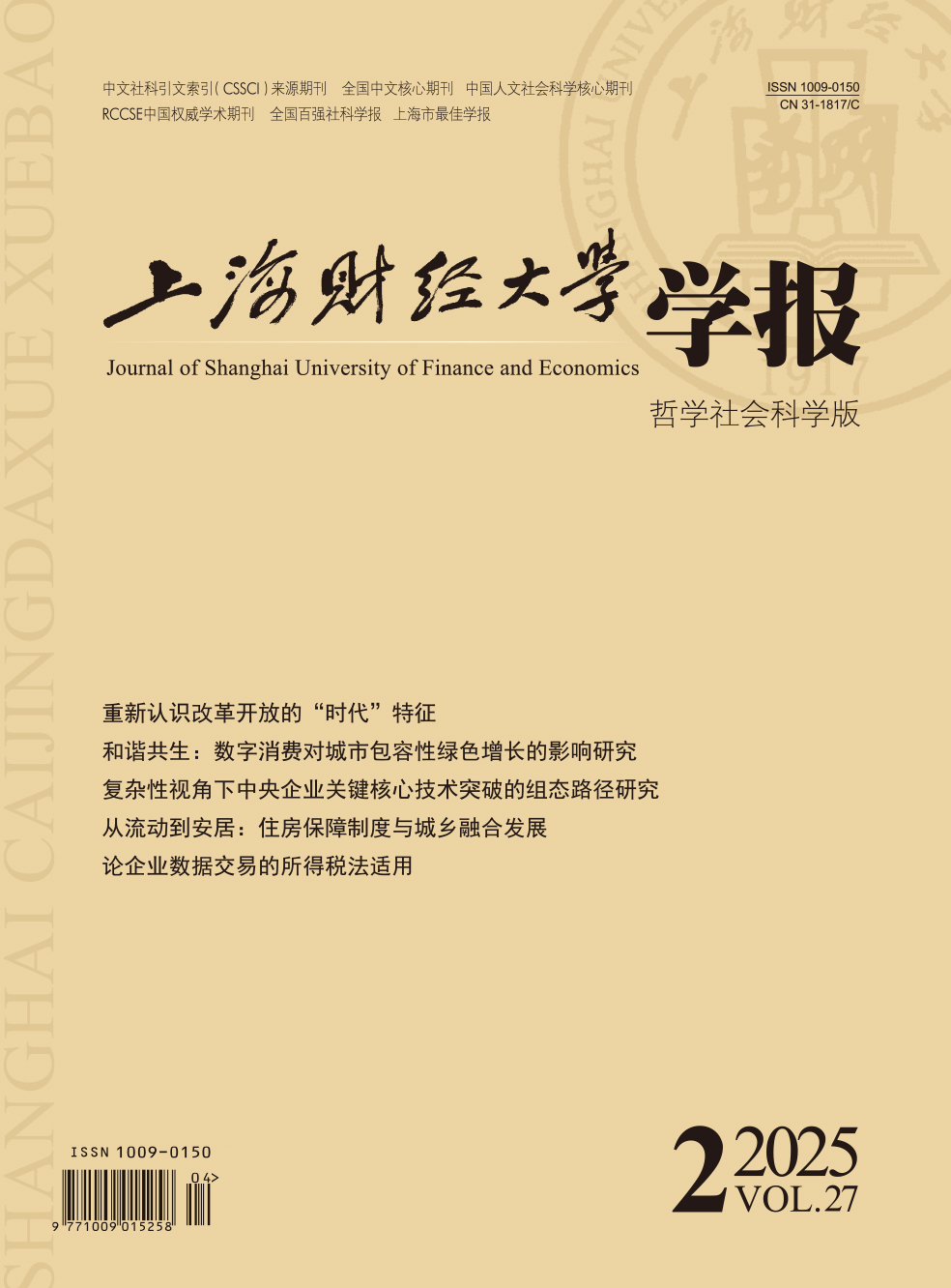基于发达市场的研究表明公司税收规避节省现金主要是出于高管的私利侵占动机。然而,在中国特定制度环境导致公司综合税负相对较高的背景下,公司税收规避节省现金很可能是出于公司生存和发展的需要。文章使用市场导向的方法考察公司税收规避对现金持有价值的净效应。研究结果表明,税收规避节省的现金给股东带来的收益大于其可能带来的成本,即存在显著为正的净效应。进一步研究表明,税收规避对现金持有价值正向的净效应主要来自于现金流不确定性较高的公司以及价格成本边际(price-cost margin)较高的公司。对于中国这一新兴市场而言,公司实际承担的税收负担仍然过重,降低公司综合税负仍然是目前政策制定者的首要目标。
私利侵占抑或生存所迫:税收规避对现金持有价值的净效应
上海财经大学学报 2016 年 第 18 卷第 06 期, 页码:54 - 65
摘要
参考文献
7 张兆国, 郑宝红, 李明.公司治理、税收规避和现金持有价值-来自我国上市公司的经验证据[J].南开管理评论, 2015, (1).
8 Armstrong C. S., Blouin J. L., Jagolinzer A. D., et al. Corporate Governance, Incentives, and Tax Avoidance[J]. Journal of Accounting and Economics, 2015, 60(1):1-17. DOI:10.1016/j.jacceco.2015.02.003
9 Bartelsman E. J., Beetsma R. M. W. J. Why Pay More? Corporate Tax Avoidance through Transfer Pricing in OECD Countries[J]. Journal of Public Economics, 2003, 87(9-10):2225-2252. DOI:10.1016/S0047-2727(02)00018-X
10 Cai H. B., Liu Q. Competition and Corporate Tax Avoidance:Evidence from Chinese Industrial Firms[J]. The Economic Journal, 2009, 119(537):764-795. DOI:10.1111/ecoj.2009.119.issue-537
11 Chen S. P., Chen X., Cheng Q., et al. Are Family Firms More Tax Aggressive than Non-family Firms?[J]. Journal of Financial Economics, 2010, 95(1):41-61. DOI:10.1016/j.jfineco.2009.02.003
12 Cheng C. S. A., Huang H. H., Li Y. H., et al. The Effect of Hedge Fund Activism on Corporate Tax Avoidance[J]. The Accounting Review, 2012, 87(5):1493-1526. DOI:10.2308/accr-50195
13 Desai M. A., Dharmapala D. Corporate Tax Avoidance and High-powered Incentives[J]. Journal of Financial Economics, 2006, 79(1):145-179. DOI:10.1016/j.jfineco.2005.02.002
14 Desai M. A., Dharmapala D. Corporate Tax Avoidance and Firm Value[J]. The Review of Economics and Statistics, 2009, 91(3):537-546. DOI:10.1162/rest.91.3.537
15 Dhaliwal D. S., Huang S. X., Moser W., et al. Corporate Tax Avoidance and the Level and Valuation of Firm Cash Holdings[R]. Working Paper, 2011.
16 Disatnik D., Duchin R., Schmidt B. Cash Flow Hedging and Liquidity Choices[J]. Review of Finance, 2014, 18(2):715-748. DOI:10.1093/rof/rft006
17 Dittmar A., Mahrt-Smith J. Corporate Governance and the Value of Cash Holdings[J]. Journal of Financial Economics, 2007, 83(3):599-634.
18 Dyreng S. D., Hanlon M., Maydew E. L. Long-run Corporate Tax Avoidance[J]. The Accounting Review, 2008, 83(1):61-82. DOI:10.2308/accr.2008.83.1.61
19 Fama E. F., French K. R. Common Risk Factors in the Returns on Stocks and Bonds[J]. Journal of Financial Economics, 1993, 33(1):3-56. DOI:10.1016/0304-405X(93)90023-5
20 Faulkender M., Wang R. Corporate Financial Policy and the Value of Cash[J]. The Journal of Finance, 2006, 61(4):1957-1990. DOI:10.1111/j.1540-6261.2006.00894.x
21 Graham J. R., Hanlon M., Shevlin T. Real Effects of Accounting Rules:Evidence from Multinational Firms' Investment Location and Profit Repatriation Decisions[J]. Journal of Accounting Research, 2011, 49(1):137-185. DOI:10.1111/joar.2011.49.issue-1
22 Hanlon M., Heitzman S. A Review of Tax Research[J]. Journal of Accounting and Economics, 2010, 50(2-3):127-178. DOI:10.1016/j.jacceco.2010.09.002
23 Hasan M. M., Alhadi Ⅱ A. K., Taylor G., et al. Does a Firm's Life Cycle Explain its Propensity to Engage in Corporate Tax Avoidance?[J]. European Accounting Review, Forthcoming 2016.
24 Higgins D., Omer T. C., Phillips J. D. The Influence of a Firm's Business Strategy on its Tax Aggressiveness[J]. Contemporary Accounting Research, 2014, 32(2):674-702.
25 Hoberg G., Phillips G., Prabhala N. Product Market Threats, Payouts, and Financial Flexibility[J]. The Journal of Finance, 2014, 69(1):293-324. DOI:10.1111/jofi.12050
26 Kim J. B., Li Y. H., Zhang L. D. Corporate Tax Avoidance and Stock Price Crash Risk:Firm-level Analysis[J]. Journal of Financial Economics, 2011, 100(3):639-662. DOI:10.1016/j.jfineco.2010.07.007
27 Kubick T. R., Lynch D. P., Mayberry M. A., et al. Product Market Power and Tax Avoidance:Market Leaders, Mimicking Strategies, and Stock Returns[J]. The Accounting Review, 2015, 90(2):675-702. DOI:10.2308/accr-50883
28 Li O. Z., Liu H., Ni C. K. Controlling Shareholders' Incentive and Corporate Tax Avoidance:A Natural Experiment in China[R]. Working Paper, 2014.
30 Mayberry M. A., McGuire S. T., Omer T. C. Smoothness and the Value Relevance of Taxable Income[J]. The Journal of the American Taxation Association, 2015, 37(2):141-167. DOI:10.2308/atax-51252
31 McGuire S. T., Wang D. C., Wilson R. J. Dual Class Ownership and Tax Avoidance[J]. The Accounting Review, 2014, 89(4):1487-1516. DOI:10.2308/accr-50718
33 Peress J. Product Market Competition, Insider Trading, and Stock Market Efficiency[J]. The Journal of Finance, 2010, 65(1):1-43. DOI:10.1111/j.1540-6261.2009.01522.x
34 Tong Z. X. Firm Diversification and the Value of Corporate Cash Holdings[J]. Journal of Corporate Finance, 2011, 17(3):741-758. DOI:10.1016/j.jcorpfin.2009.05.001
35 Zhang M., Ma L. J., Zhang B., et al. Pyramidal Structure, Political Intervention and Firms' Tax Burden:Evidence from China's Local SOEs[J]. Journal of Corporate Finance, 2016, 36:15-25. DOI:10.1016/j.jcorpfin.2015.10.004
引用本文
陈胜蓝, 贾思远. 私利侵占抑或生存所迫:税收规避对现金持有价值的净效应[J]. 上海财经大学学报, 2016, 18(6): 54–65.
导出参考文献,格式为:





 6664
6664  7164
7164

